The Orthodox Church of Poland: dependence on Moscow is a challenge for the security of Polish society – a conversation with Dr Pawel Wroblewski

Pawel Wroblewski, ph.d. is the vice director of the Institute of Philosophy at the University of Wroclaw, Poland and the head of the Centre for Prognostic Research on Religious Changes.
After being exposed to Hellenic Orthodoxy in adulthood, he was baptised and became Orthodox. He notes, "I was baptised by Metropolitan Ioannis of Langadas, the first Greek hierarch to recognise the autocephaly of the Orthodox Church of Ukraine (OCU)."
Since 2019, he has participated as an expert in the project of the Doctrine and Training Centre of the Polish Armed Forces in the field of security environment analysis from the perspective of interfaith relations; since 2022, he has been responsible for cooperating with this Centre on behalf of the University of Wroclaw.
Dr Wroblewski's other research interests include contemporary intercultural and interreligious dialogue, the history of philosophy, the philosophy of religion, especially the philosophical basis of differences between the Christian East and West, and the history and presence of the Orthodox Church of Poland.
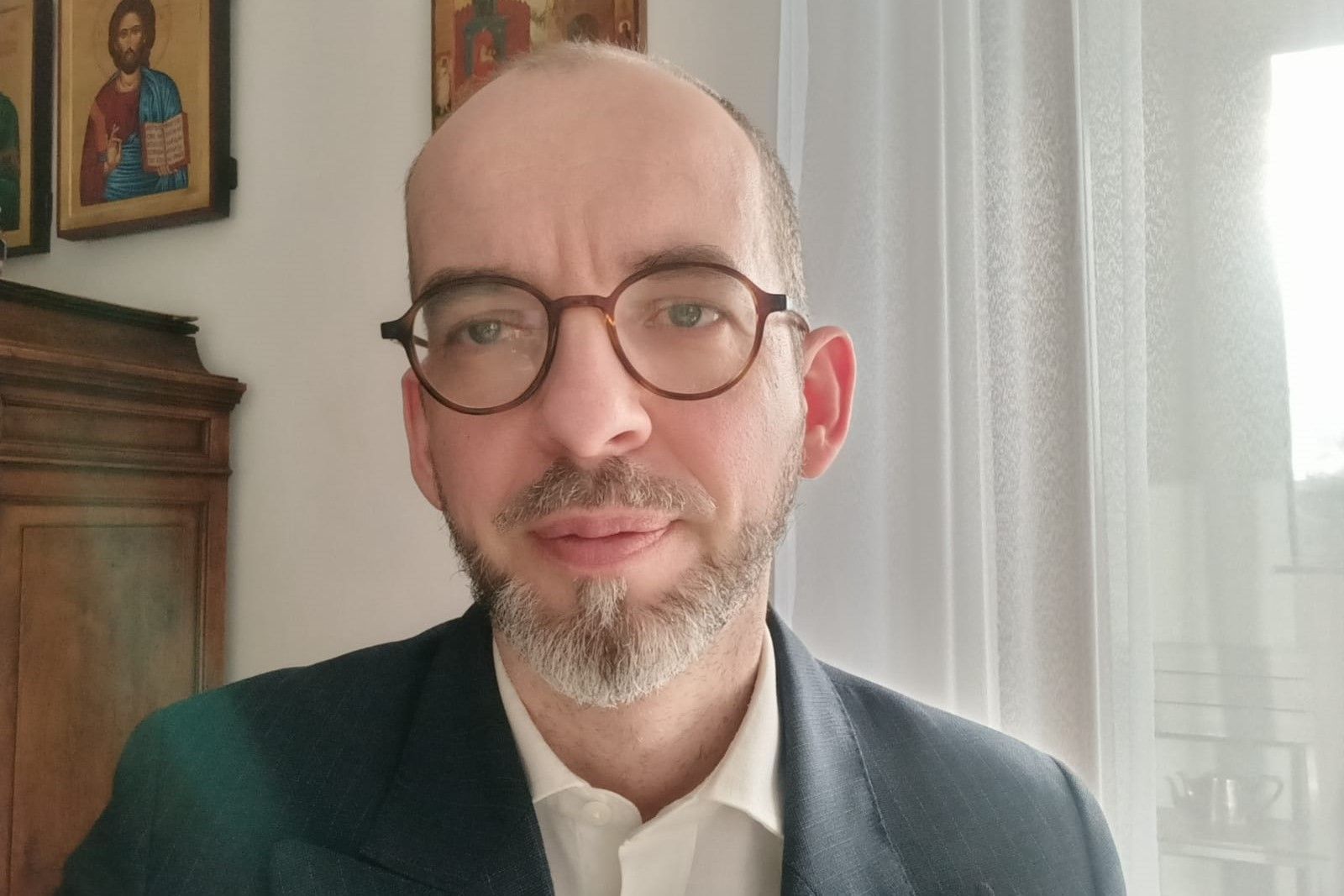
– Professor Wroblewski, how is the PAOC celebrating its anniversary?
– The official timetable for the anniversary, announced on 9th March, is rather general, which may indicate that preparations are not progressing. This programme also does not take into account certain legal and historical complexities: in 1924, Constantinople issued a tomos granting autocephaly to the Orthodox Church of Poland, but its solemn announcement and adoption in Warsaw with the participation of representatives of our authorities took place in 1925. This latter act, i.e. promulgation, validates the tomos, so the celebration should be postponed to next year if we are talking about a real anniversary.
The PAOC is trying to give the celebrations a national status to obtain financial resources - the participation of President Andrzej Duda has been announced, but this issue has not yet been resolved. I think that Mr President would risk losing his credibility if he did not consider the constant support Moscow has been giving to the Orthodox Metropolis of Warsaw, which is mutual. One of the anniversary services will be held in the newly built church, the completion of which was financed by a foundation linked to the Russian state-owned Rosatom company. This corporation has been subject to numerous international sanctions concerning the war in Ukraine. It would be better to pray in this church with bare walls than with golden icons for bloody rubles in this situation.
I have a personal grudge against Metropolitan Savva for continuing to play the Ukrainian issue with the language of theological conspiracy theories. In his recently published Lenten address, he touched on the topic of "manifestations of Satan's activity" in Ukraine, alluding to the alleged persecution of Orthodox Christians and the taking of their property. Metropolitan Savva stated that in this way, "the world created by God has lost its original harmony", suggesting that the Moscow Patriarchate created this "original harmony" in Ukraine. This is fully consistent with the international actions of the Russian Federation to present Ukraine, the actual victim of Russian aggression, as an aggressor that violates, among other things, the right to religious freedom. Once again, Metropolitan Savva failed to condemn the evil of thousands of Ukrainian victims and the Moscow Patriarchate's support for the horrors of war.
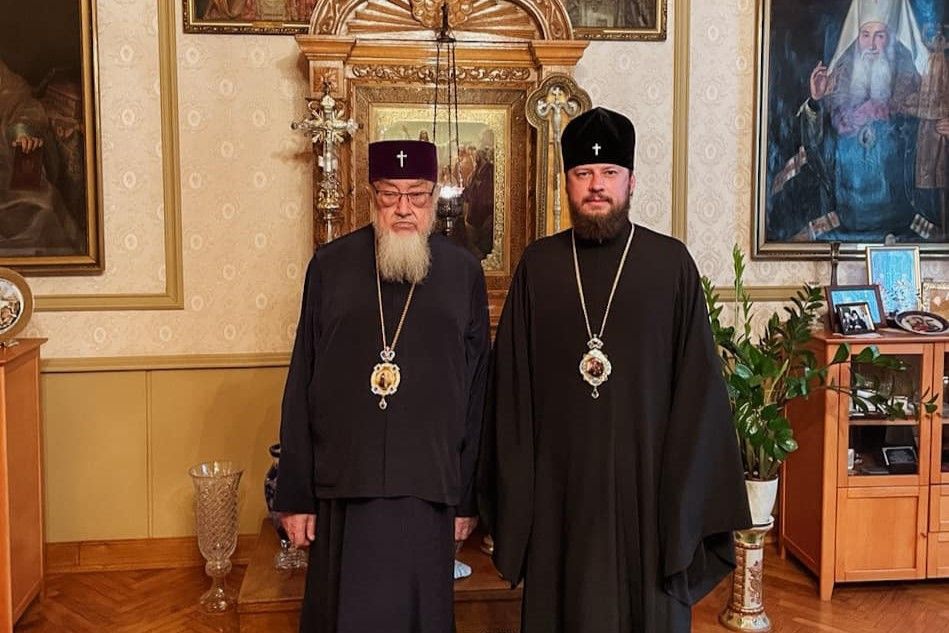
Such a position cannot be acceptable and should be the basis for reconsidering many issues in relations between the Polish state and the PAOC. In this context, it should be added that on 13th March, Metropolitan Savva recently received Archbishop Viktor Kotsaba, a delegate of the Ukrainian structures of the Moscow Patriarchate for contacts with European international organisations, at his residence. Moscow is trying to create its own "Ukrainian" pastoral centres in Western Europe – 84 have already been established. The PAOC supports this activity, including through the transfer of clergy. These actions contribute to the implementation of the so-called strategy of humanitarian policy abroad, adopted by Russia in 2022, which provides for the participation of religious communities controlled by the Russian state in the "struggle for cultural influence" and "neutralisation of anti-Russian sentiment".
– Why does Russia so strongly influence the PAOC?
– The current situation of the PAOC is completely different from the situation a hundred years ago. The strength of this Church in the interwar period resulted from two factors: its separation from Moscow and its support for the Polish raison d'etat. Although, as we know, there were many serious disputes, especially over revising religious buildings. However, in 1929, Orthodox Christians made up 12.3% of the Polish population, and today, according to 2021 statistics, only 0.4% – this situation is also not without significance, as a marginalised religious group naturally loses the social and political influence to which it is accustomed. Perhaps that is why Metropolitan Savva is now seeking support in Moscow, trying to make the Polish authorities take an interest in him, but this old trump card is not strong because the trust in the PAOC in this game is becoming less and less.
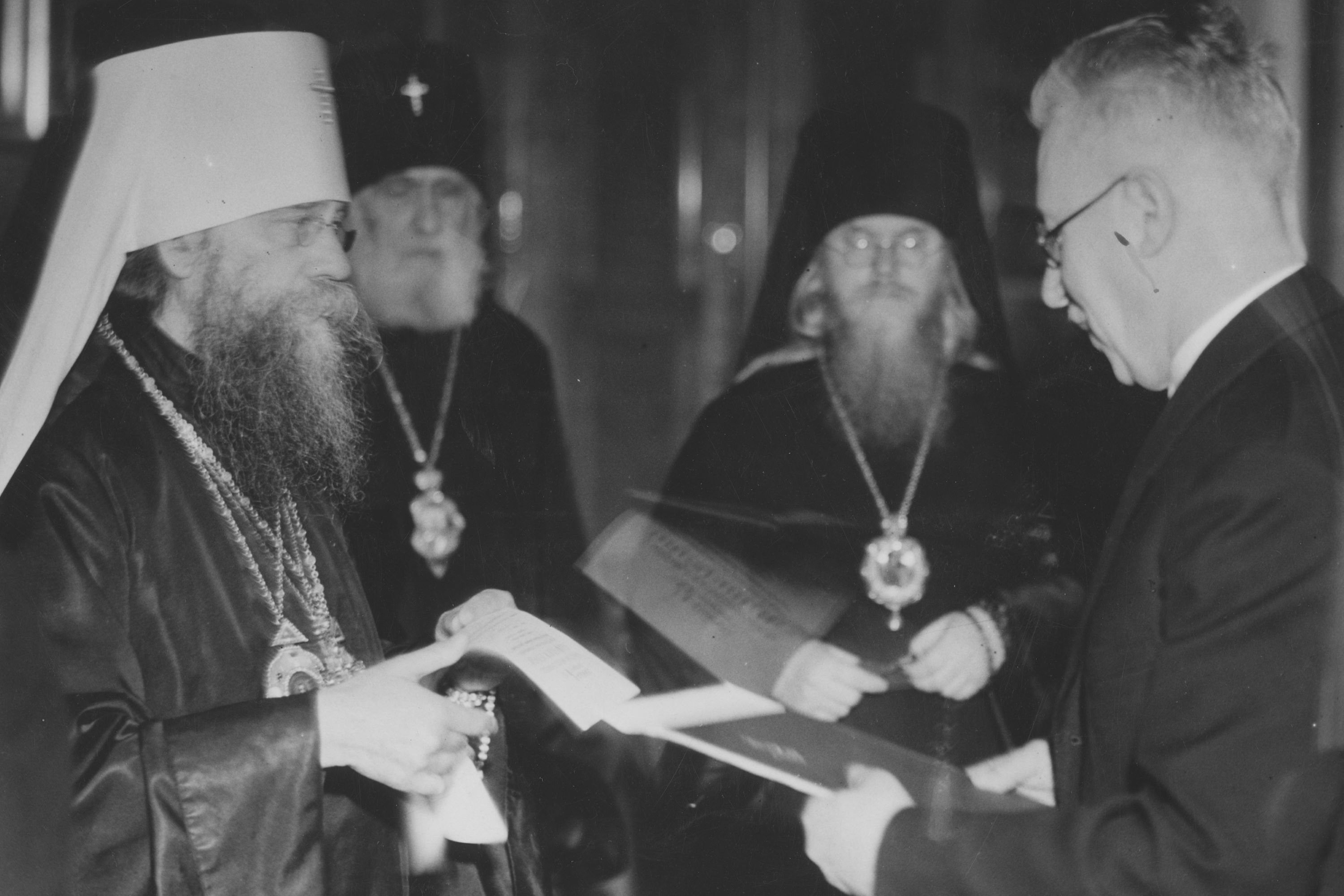
This situation shows that the PAOC needs help to reflect on its history critically. The idealisation of self-image displaces the ability to make the necessary examination of conscience. Such an anniversary should have been an occasion to take stock of all the hundred years of the Church's existence. However, the infamous collaboration of Metropolitan Dionysius Waledynski with the Nazis is silenced, as is the entire subsequent period of serious entanglement with communism, including official support for the martial law of 1981-83. The belief in Moscow's power was strengthened by the phenomenon of intergenerational transmission of contacts with the communist secret service (SB) in the PAOC, which can be called "agent succession". An example is the attitude of Metropolitan Basil Doroszkiewicz, who recommended his son cooperate with the SB. Today, the picture is no better because the "agent continuity" has created an environmental "mental continuity" with a tendency to dangerously mythologise Moscow and thus continue the worst stereotypes about Orthodoxy among Poles.
One might ask: where did the pre-war PAOC go? Many arguments suggest that its authentic tradition was continued by two Orthodox bishops associated with the Polish government in exile in London. In addition, there are the documents of 1981 from the State Office for Religious Affairs, which contained the communists' plans to break up the "non-affiliated" Polish Orthodox group in England, which numbered approximately 200 people - the main role in this project was played by Bishop Savva Hrycuniak, who, as the head of the PAOC, transported the remains of these bishops, Savva Sowietow and Matthew Siemaszko, to Poland in 2012. Therefore, it is not surprising that the local Orthodox Church sees nothing inappropriate in another paradox: the combination of celebrating the 100th anniversary of its autocephaly with loyalty to Moscow in the Ukrainian issue. I am afraid that this internal contradiction will completely marginalise the social role of Orthodoxy in our country.
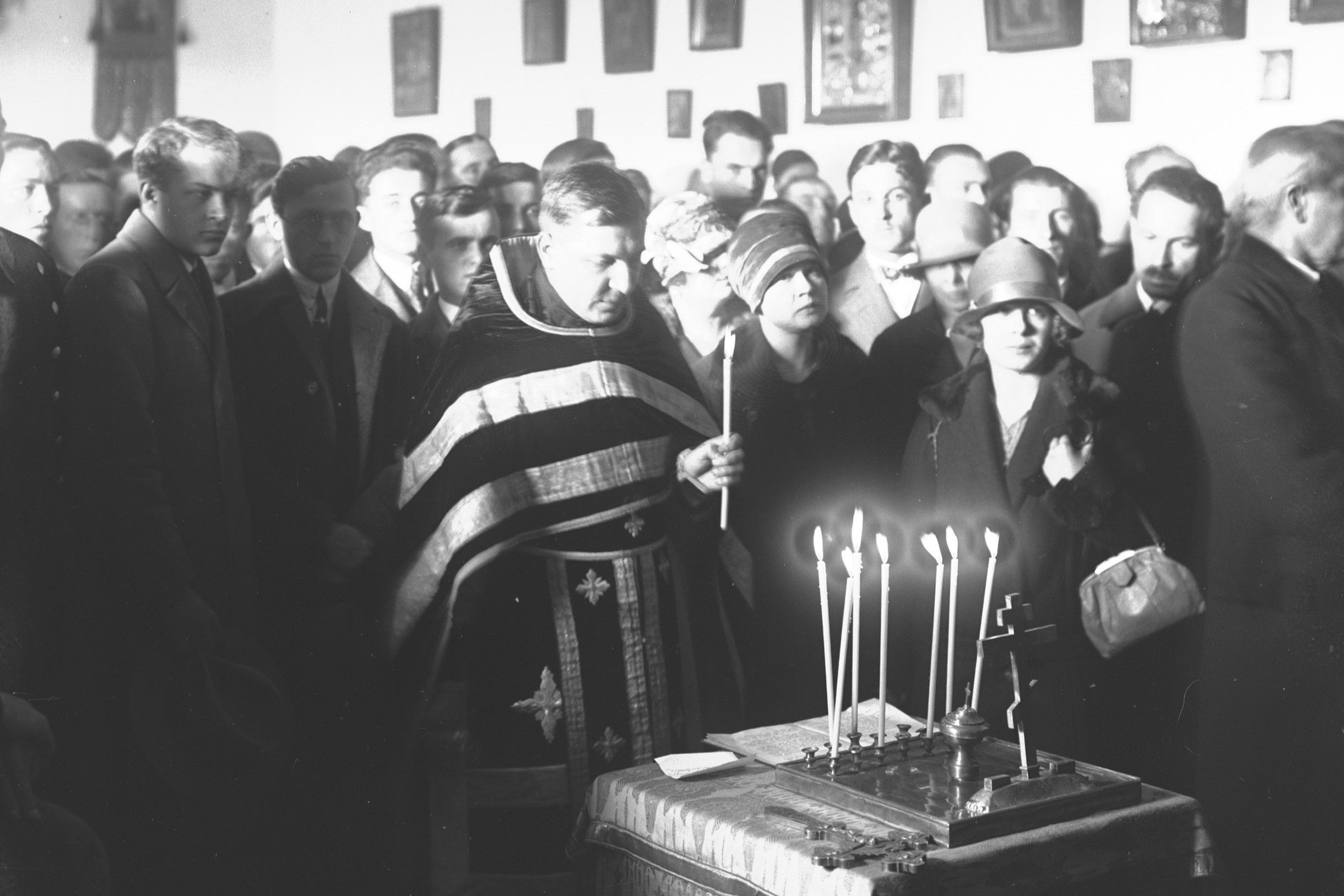
– What are the relations between the Polish state, government, and the PAOC? Doesn't the PAOC leadership's pro-Russian policy cause negative reactions from the authorities and society?
– The Polish state has not developed mature religious policy instruments since 1989. In light of the current dynamics of socio-cultural changes associated, among other things, with the devaluation of the authority of religious institutions, this issue is becoming increasingly relevant. Moreover, religious instruments have become increasingly important in the context of the activities carried out by the Russian Federation as part of the so-called cognitive warfare. Russia not only uses Orthodox Christianity but also tries to influence other "traditional" faiths, such as Islam, Judaism and Buddhism. Diagnostics of the impact of these factors on regional security should be comprehensive. Article 53 of the Polish Constitution allows for restricting religious associations' activities for security reasons, but there are no grounds for such drastic decisions, even if certain areas require monitoring and intervention.
The PAOC enjoys financial support from the state on equal terms with other churches and religious communities. It is now the subject of broader inter-ministerial consultations. The inability to convene a meeting of the joint government and PAOC representative committee since 2018 indicates a certain crisis in relations. This is mainly due to the growing material claims of the Church. Undoubtedly, the overall public decline in trust in the PAOC is influenced by its ties with the Moscow Patriarchate: the consequences of this will be long-term, perhaps even irreversible in some aspects.
– So, does the state still need to understand all the consequences of Moscow's influence on internal affairs in Poland through religious circles? Does Polish society already see this as a threat?
– On the contrary, the Polish National Security Strategy of 2020 identifies threats from the Russian Federation – a prerequisite for its creation, among other things, was an analysis covering the religious sphere. The latter is expressed in the document of the NATO Allied Command Transformation, published a year later, which explicitly defines the role of the Russian Orthodox Church in Putin's policy as strategic. Of course, the war in Ukraine has revealed new aspects of this threat to Polish society and allowed us to verify and refine our diagnoses. Against this background, social sensitivity in Poland is growing. Ignoring this, sometimes the fault of certain politicians leads to underestimation of the Kremlin's real and potential actions.
My previous criticisms point to the need for more holistic solutions and their professionalisation. It should be remembered that in a democracy, the state and religious associations have mutual legal obligations. I am the author of a project to create a unit to implement the tasks of the state arising from the constitutional protection of religious freedom and international law in this area. It should be a body that will also identify, control and counteract extremist activities on religious grounds that threaten national security. In this regard, we would like to draw on the experience of other EU countries, the United States, and Ukraine. It would be better to avoid the situation that recently occurred, for example, in Sweden, where the government withdrew subsidies from the local structures of the Russian Orthodox Church, whose representatives, although not openly supporting the war in Ukraine, maintained contacts with Russian special services and received financial support from the Russian state and privately incited support for the invasion.
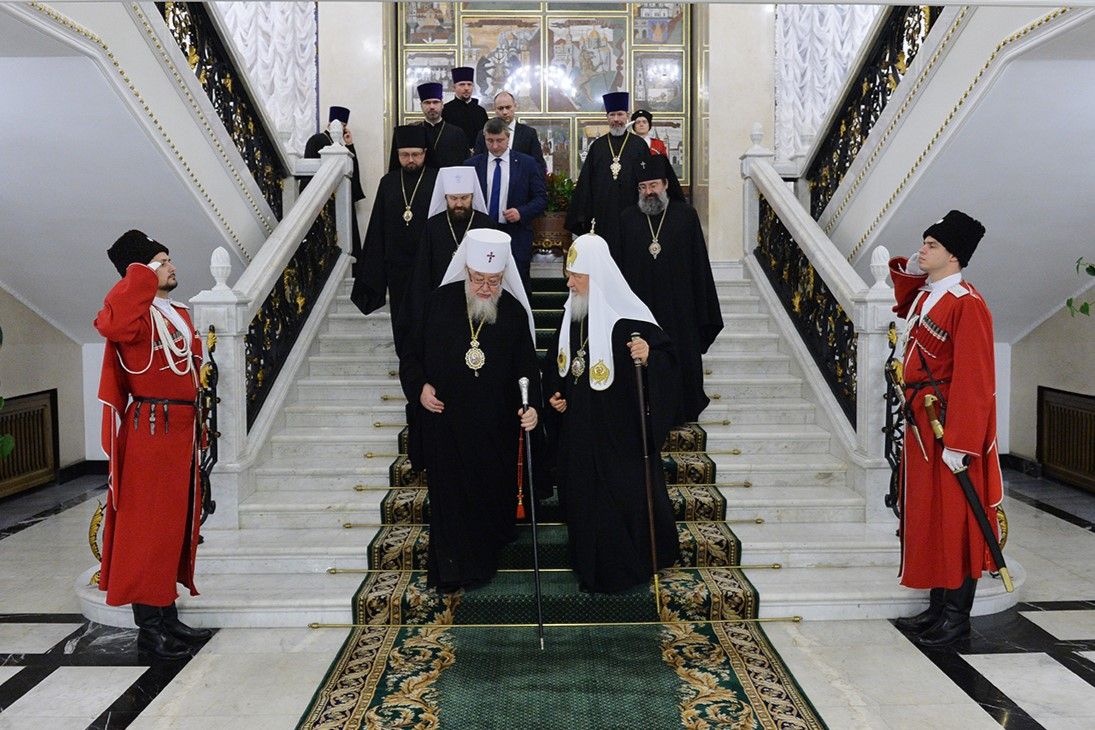
– You mentioned other religions, but how does Russia influence Poland through them?
– In Poland, we have 186 churches and religious communities with a regulated legal situation, as well as informal religious groups: it is difficult to present a summary of this influence, as well as the potential impact of the Russian Federation. Rather, I suggest starting with a more accurate depiction of the basic religious entities that are the translators of Kremlin policy. It is a wide network created by a special council under the Russian president and the Russian Interreligious Council, an advisory body to the UN. Here are just a few examples: Muslims in Tatarstan, whose leader Mufti Kamil Samigullin is a member of the latter, are linked to the extremist organisation Hizb ut-Tahrir, which has called for the creation of a caliphate in Europe; Damba Ayusheev, the head of the Tibetan Buddhists in Russia, has great influence in Asian peacekeeping organisations and willingly supported the aggression against Ukraine; Bishop Sergei Ryakhovsky, the local head of a Pentecostal organisation with congregations in 185 countries, also supported the war. Russian special services control all these activities aimed at destabilising Western countries. Therefore, often, in such assessments, it is not what we see that is important but what we do not see.
– And how do the faithful of the OCU feel about such views of their church leadership? To what extent does the Orthodox flock in Poland also have such pro-Russian views?
– I am unaware of the results of sociological research on this topic, and my knowledge needs to be improved to draw definitive conclusions. The Orthodox community of Poland is deeply polarised on this issue.
– The year before last, rallies were held saying that the Orthodox in Poland do not mean Russians. Were these actions supported? Are there any other attempts by Orthodox believers in Poland to demonstrate their disagreement with the bishops' pro-Russian course?
– I believe the discontent is significant, but usually at a level that does not contradict "big politics". The faithful and clergy are afraid of repression by the hierarchs, but at the same time, they are ripe for decisions that align with their conscience, and this process will have to manifest itself. It is difficult to predict to what extent.
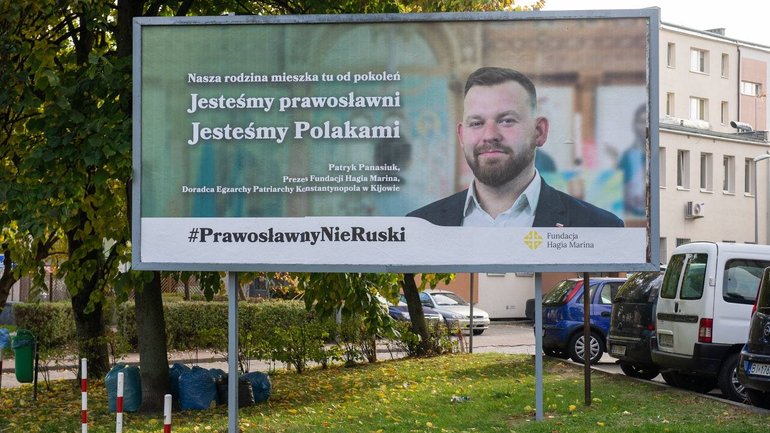
A billboard campaign in Bialystok in 2022 entitled "The Orthodox are not Russians" showed the need to combat stereotypes. This information campaign aimed to show that Orthodox Christianity, in which "there is neither Jew nor Greek" (Galatians 3:28), cannot be identified with any form of nationalism. However, there was no shortage of people associated with the PAOC who nervously viewed the event as an act of aggression. The Russian Foreign Ministry also condemned this initiative in a report of 30th November 2023. Such a reaction shows that the initiators of the campaign have successfully formulated the problem: often, when arguments inconvenient for the PAOC appear, they are presented as an attack on a national and ethnic basis. The Kremlin uses exactly the same schemes of manipulation.
– There were publications in the Polish media about Orthodox bishops being presented as agents of the Soviet or Russian special services. Did these publications provoke any reactions in society?
– Actually, with the outbreak of the war in Ukraine, the Polish media have become more interested in this issue, which is a good trend. Such pressure on public opinion should be an argument for the belated lustration of churches and religious associations, i.e. their legal and moral responsibility for collaboration with communist totalitarianism. Materials on this topic should not be an accidental means of political blackmail – access to them should be much wider to talk about realities, not myths created by unreasonable supporters and opponents of such demands. Without this, there is no possibility of redress for possible wrongs and the widest possible reconciliation, which has negative consequences for the cohesion of society. Until now, the religious policy of the Polish state has been based on a comfortable silence: the state, in exchange for the political openness of the churches, has waived the consequences associated with cooperation with the communist security service, adding financial resources. This model, which the current government still uses, is harmful to all parties, especially in the context of the current actions of the Russian Federation. Why? The unresolved story is closing in on itself – the former agent resources in the Soviet zone of influence can continue to be used by Russian special services. Suffice it to say how serious the problem is in Ukraine.
Interestingly, there are plans for counterintelligence activities from the 1980s, which took place under the supervision of the KGB, including surveillance of international religious organisations such as the World Council of Churches. We have a list of 20 undercover collaborators, Polish citizens, recruited for this activity from non-Roman Catholic religious communities. It may be surprising that representatives of the PAOC, in particular, Metropolitan Savva Hrycuniak and Bishop Warsonofiy Doroszkiewicz, were an evident minority in this group. Clearly, not only Orthodox Christians can be in the Kremlin's sphere of influence. Uncontrolled processes often impact more than those under our control, so it is worth updating some definitions.
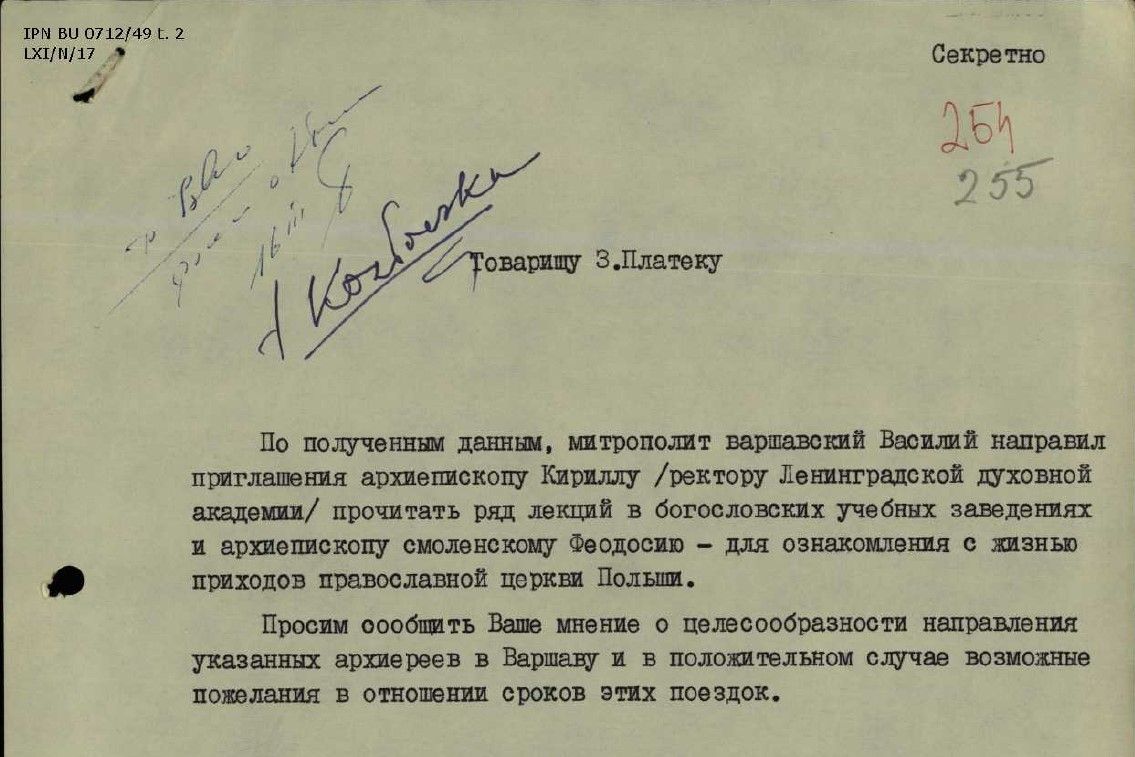
– Over these more than two years, have there been any cases of Orthodox or any other clergy working in favour of the Russian aggressors, for example, spreading their propaganda or messages? We are now seeing how pro-Russian politicians are acting, using the discontent of farmers and making speculations on this basis. Is something similar happening in the religious sphere of various churches and religions?
– First of all, we are dealing with many cases of "agents of influence", also in religious circles in Poland. They have been and will be checked for possible contradictions with the current legislation. An example is the fact that during the first period of the war, pro-Kremlin commentators associated with the entourage of Mateusz Piskorski, who was charged with espionage for Russia and China in 2016, became more active on Orthodox Internet forums. The case of Fr. Piotr Nikolski of the PAOC, who wrote "Attaboy, Putin!" in the context of aggression against Ukraine and criticised "NATO criminals", was shocking – the bishop punished him, but the problem seems to be wider.
– Over the past decades, the PAOC has cooperated with the Ukrainian Orthodox Church of the Moscow Patriarchate (UOC-MP). The PAOC bishops are in contact with pro-Russian circles in the UOC-MP. Now, the PAOC supports the efforts of the UOC-MP clergy to provide spiritual care for Ukrainian refugees. However, the priests of the OCU need this opportunity. Are there any ways to create communities for Orthodox Ukrainians who now find themselves in Poland in which Polish priests or those from the OCU, but not the UOC-MP, would serve?
– All the administrative rules of the Orthodox Church are indeed subordinated to salvation, and a state of emergency may suspend certain regulations. It may apply to the current situation with refugees due to the war in Ukraine, but only if it is recognised that the PAOC cannot provide the means for salvation, and such circumstances occur, for example, when the faithful of the OCU are not recognised as members of the Orthodox Church. Such situations have happened in the PAOC, but most parishes, as far as I know, are open to the spiritual care of all Orthodox Christians who have come from Ukraine.
A year ago, I proposed to consider the establishment of a stauropegion of the Ecumenical Patriarchate in Poland and to include the clergy of the OCU living in our country in it - the Metropolis of Warsaw and representatives of Constantinople did not reject this project, but the most sceptical voices on this matter, unfortunately, came from the clergy of the OCU themselves.
The PAOC's cooperation with the Moscow Patriarchate is a fact and morally burdensome. But even if we assume that Patriarch Kirill betrayed his dignity by supporting the bloodshed in Ukraine, as Orthodox canon law states, all his spiritual activities will be considered valid until he is deposed.
Leaving aside all political aspects, the 2019 Tomos of the Patriarch of Constantinople, although a valid act, does not have automatic legal force, as it only begins recognising autocephaly by other local Orthodox Churches, and the matter is not moving forward. I believe finding a solution that would satisfy everyone today is impossible, so we should focus on minimising the losses from splits. In this context, temporary solutions are possible but require maturity and humility from all parties.
– How do you see the further development of the Orthodox Church of Poland? Will its pro-Russian leadership or vision of events change? And is there a possibility of changes in attitudes towards the Ukrainian issue, including the church issue?
– The modern world is torn by a deep crisis of the authority of religious institutions: people are losing trust in the historical churches, and their spiritual paths are becoming highly individualised. These trends are also deepening in Poland, especially in the 18-24 age group, where the number of atheists has increased by 22 per cent over the past two decades. It means that religious minorities will eventually become even smaller in number and will no longer be an attractive partner for politicians. It will also be a difficult time for the PAOC because it has become accustomed to excessive symbiosis with political reality, forgetting that Christ rejected "all the kingdoms of the world and their glory" (Matthew 4:8) – those who are interested in Orthodoxy are still looking for authenticity and community, not political and religious folklore.
The change of the Church’s head can’t lead to an expected change in the situation of the PAOC, as the likely successors demonstrate a similar pattern of political behaviour. The involvement of the PAOC in supporting the Moscow Patriarchate carries a high risk of multifaceted losses, and the PAOC is obviously ready for this.
Despite this, I do not lose hope for the settlement of Ukrainian affairs because I know how much good prevails over evil.




